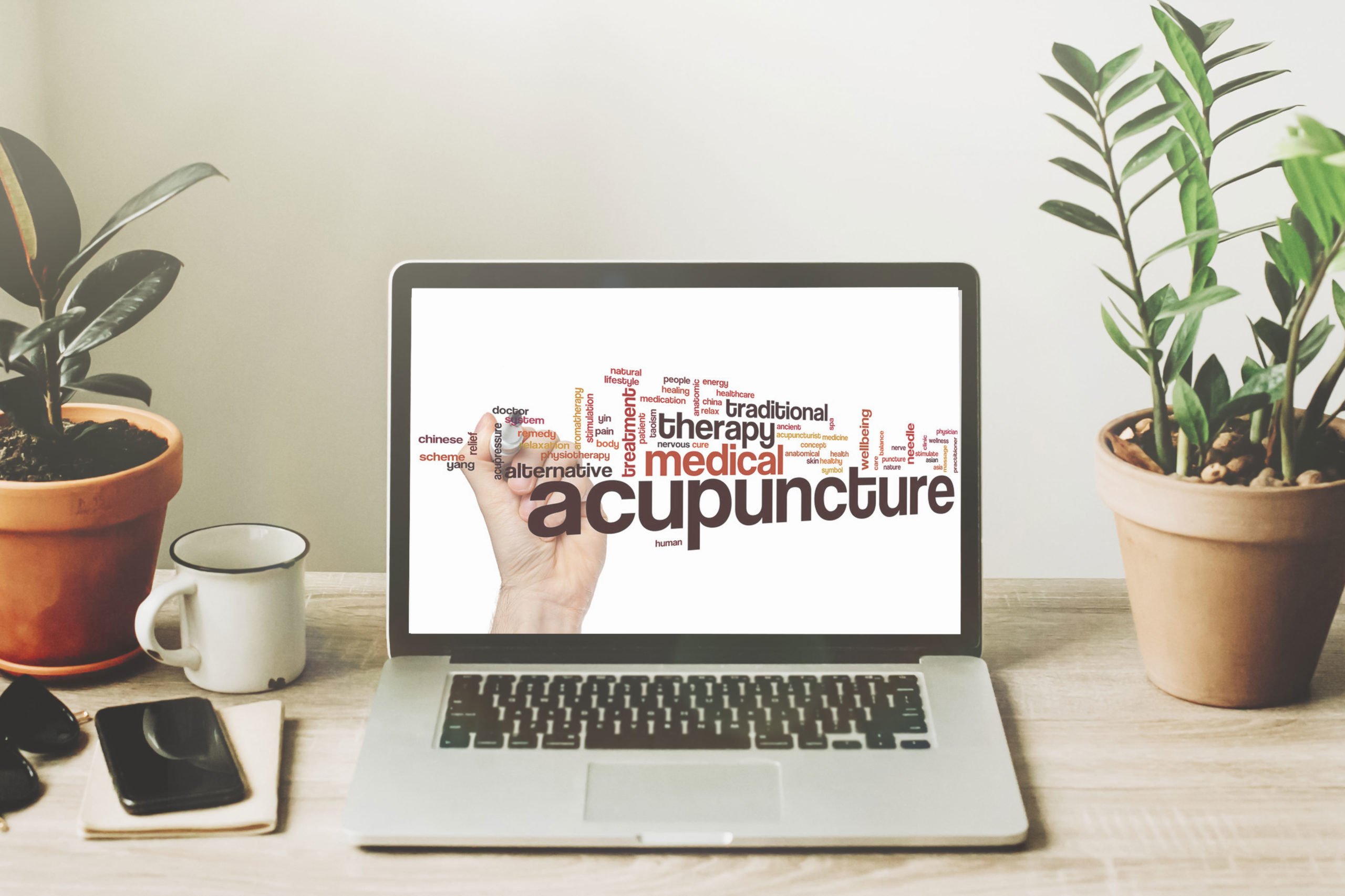Qi Mail™
The Acupuncture Newsletter September 2011
Julee Miller AP, DOM, BS, LMT
Health Pointe Jacksonville, LLC
3840 Belfort Road, Suite 305
Jacksonville, FL 32216
904-448-0046/www.hpjax.com
Nurturing Mental and Emotional Wellness with Acupuncture
At some point in life everyone deals with major upheavals or emotional distress. These events can trigger a host of unexpected feelings and behaviors from depression and panic attacks to major disruptions in sleep and eating. Acupuncture and Oriental medicine can alleviate symptoms associated with mental health issues in treating the root cause of the problem by helping to rebalance the body’s internal environment.
Mental health disorders are medical conditions that disrupt a person’s thinking, feeling, mood, ability to relate to others, and daily functioning which result in a diminished capacity for coping with the ordinary demands of life. The good news about mental disorders is that recovery is often possible. Affecting persons of any age, race, religion, or income mental health disorders have been found to be common and experts estimate almost a third of the population report sufficient qualifying criteria at some point in their life. Serious mental illnesses include major depression, schizophrenia, bipolar disorder, obsessive compulsive disorder (OCD), panic disorder, post traumatic stress disorder (PTSD), and borderline personality disorder.
From an Oriental medicine perspective mental health disorders can cause a disruption in the flow of vital energy, or qi, through the body. These energetic imbalances can throw off the immune system or cause symptoms of pain, sleep disturbances, abnormal digestion, headaches, and menstrual irregularities, and, over time, more serious illnesses can develop. Acupuncture treatments can correct these imbalances and directly affect the way your body manages your mental health.
Diagnosis and Treatment of Mental Disorders
Oriental Medicine does not recognize any mental disorder as one particular syndrome. Instead, it aims to treat the specific symptoms that are unique to each individual using a variety of techniques including acupuncture, lifestyle/dietary recommendations and exercises to restore imbalances found in the body. Therefore, if 100 patients are treated with acupuncture and Oriental medicine for anxiety, each of these 100 people will receive a unique, customized treatment with different acupuncture points, and different lifestyle and diet recommendations.
Acupuncture and Oriental medicine have the ability to detect energetic changes that occur in the body and relieve symptoms by restoring equilibrium. The physical and emotional symptoms that you are experiencing will help create a clear picture on which a treatment plan can be created specifically for you.
Here are just a few acupuncture and Oriental medicine can help with:
Depressive Disorders – Common symptoms of depressive disorders include: a decreased interest in most activities, insomnia, fatigue, and feeling empty and worthless. Even when depression is sub-clinical, the body’s immune system is compromised and the symptoms reduce functioning and impair work performance and social relationships. Acupuncture treatments can correct these imbalances, support the immune system, and directly affect the way your body manages stress and your mental health.
Attention Deficit/Hyperactive Disorder (ADHD) – a condition of the brain that makes it difficult to concentrate or control impulsive behavior ADD/ADHD does not just occur during childhood. Acupuncture can help enhance concentration, reduce fidgeting, augment mood management techniques, reduce hyperactivity and enhance concentration.
Anxiety and Stress Disorders – Anxiety comes in a wide range of manifestations, from mild worrying to more physical responses such as nausea, insomnia, shortness of breath and panic attacks. Some anxiety is a healthy response to the stress of daily life and new situations; however, anxiety that occurs randomly or excessively is a sign to take notice. Acupuncture and Chinese medicine can help balance both the mental and physical symptoms of anxiety and help to create harmony and spaciousness.
Mental health issues are best managed when health professionals work together to meet the unique needs of each individual. Acupuncture is an excellent addition to any treatment plan as it is used to help the body restore balance, treating the root of the disorder, while also diminishing symptoms.
If you or someone you know struggles with a mental health disorder or if you would like to know how to optimize your mental health, please call to find out more about how acupuncture and Oriental medicine can be integrated into your mental and emotional wellness plan today!
Acupuncture for Irritability and Moodiness
Everyone suffers from irritability and moodiness from time to time, but if you find that a short temper and frustration are becoming a constant issue for you, then acupuncture may be able to help.
Often irritability and moodiness are the consequence of chronic stress in your life. Over time these emotions can progress into more serious emotional conditions such as anxiety and depression as well as other health conditions such as digestive problems, trouble sleeping and the tendency to get sick more frequently.
Liver Qi Stagnation and Emotions
Emotional disorders can be associated with a number of different patterns of disharmony within Oriental medicine however, anger, irritability, and frustration are all signs that our qi (life force) is not flowing smoothly. The liver is responsible for the smooth flowing of qi (life force) throughout the body and for smoothing our emotions. When the liver’s function of moving qi is disrupted, qi can become stuck. This is referred to as liver qi stagnation.
Liver qi stagnation is one of the most common patterns of disharmony seen in today’s patients. In addition to irritability and moodiness, signs and symptoms may include: distending pain in the area below the ribs, stuffiness of the chest, sighing, abdominal distention, nausea, sour regurgitation, belching, diarrhea or constipation, feeling of a lump in the throat, irregular periods, painful periods and distention of the breasts prior to periods. Liver qi stagnation is commonly associated with PMS.
Acupuncture and Oriental medicine is excellent at relieving liver qi stagnation. Treatment for irritability and moodiness associated with liver qi stagnation focuses on moving qi and supporting the liver and spleen organ systems with acupuncture, lifestyle and dietary recommendations.
If you are concerned that your emotions may be interfering with your health and wellness, please call (904) 448-0046 today to see how acupuncture and Oriental medicine can help you!
When your Qi (life force) functions smoothly, physical and emotional activity throughout the body also runs smoothly. So, for optimum health, move your Qi!
Stretch
According to Oriental medicine, the liver stores blood during periods of rest and then releases it to the tendons in times of activity, maintaining tendon health and flexibility. Incorporate a morning stretch into your routine.
Eye Exercises
Although all organs have some connection to eye health the liver is connected to proper eye function. Take breaks when looking at a monitor for extended periods of time and do eye exercises.
Eat Green
Eating young plants – fresh, leafy greens, sprouts, and immature cereal grasses can improve the liver’s overall functions and aid in the movement of qi.
Do More Outdoor Activities
Outside air helps liver qi flow. If you have been feeling irritable, find an outdoor activity to smooth out that liver qi stagnation.
Acupressure Points for Moving Qi
Four Gates
A popular treatment for stress, anger, sadness, and frustration these four acupuncture points are thought to enhance the circulation of Qi and blood throughout the body and have a calming and analgesic effect.
LI 4 is located on the padded area of your hand between the thumb and index finger, between the first and second metacarpal bones. Massage this point with your thumb on both hands for approximately 30 seconds.
LV 3 is located in a hollow on the top of your foot below the gap between your big toe and the next toe, between the 1st and 2nd metatarsal bones. To stimulate this point, place your right heel in the juncture between the bones that attach to the large and second toes and gently knead the point for approximately thirty seconds. Then switch sides to stimulate the point on your other foot.
Baihui (Du 20) for Clarity
Massage acupuncture point, Baihui for mental clarity. Located on the top of the head midway between the ears Baihui is used to clear the mind, calm the spirit, and improve focus. Stimulate the point with your index finger for 30-45 seconds for a quick “brain boost”.
Yintang for Calmness
Yintang, a point located midway between the eyebrows is sometimes referred to as “the third eye”. Stimulation of Yintang is known to calm the mind, enhance one’s ability to focus, soothe emotions, promote sleep, and relieve depression.
Good Health. Good Life!



About The Author: Julee Miller
More posts by Julee Miller